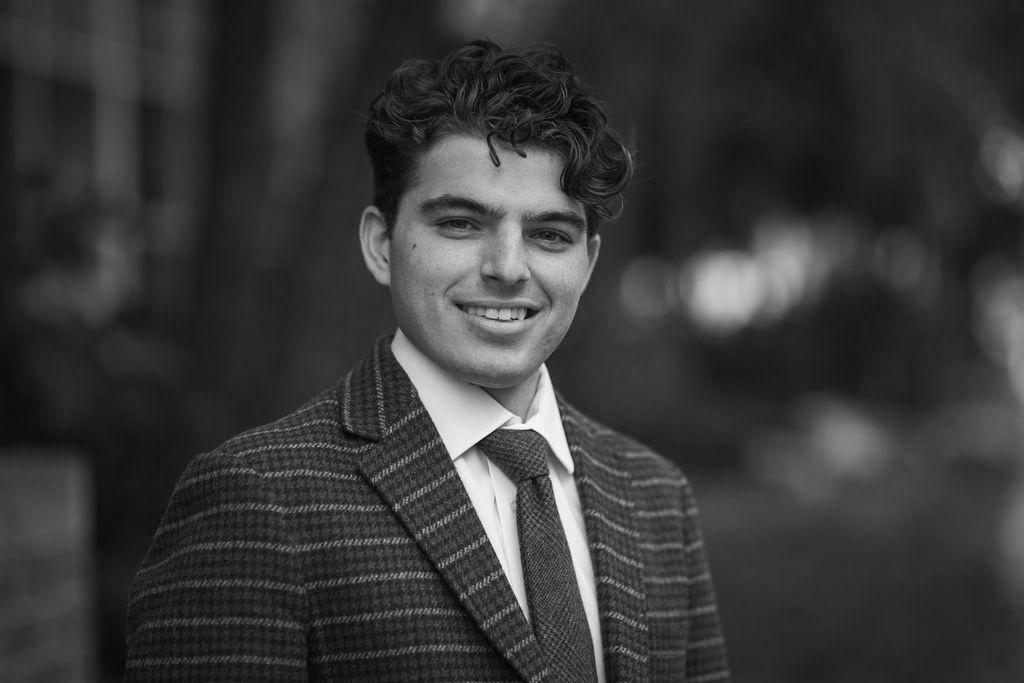The reform boosted investment, but its effect on wages is murkier.
Jackson Mejia
Jackson Mejia thought he wanted to become an electrical engineer. Then he discovered economics.
When Jackson Mejia was in high school, he helped build a full-size electric vehicle that won international competitions, including the Shell Eco-Marathon Drivers’ World Championship in London. He seemed destined to pursue a career in engineering.
But by the time he got to Vanderbilt University, he’d fallen in love with economics. To Jackson, “It didn’t make a lot of sense to study the slump rate of concrete, while reading about nominal GDP targeting outside of class.” As a result, he transferred to the University of Minnesota, a “macro Mecca,” in his words.
Jackson grew up close by— in St. Paul, Minnesota — where he spent his early childhood scampering around the skeletons of renovated houses. Prior to the financial crisis and subsequent recession, his parents were in real estate. As he puts it, his “family fortunes followed the business cycle, so my interest in macroeconomics was only natural.”
The University of Minnesota is well-known for its history as the home of the rational expectations revolution in economics, alongside its “freshwater” school compatriot, the University of Chicago. At Minnesota, Jackson quickly established himself as one of the school’s brightest economics students. Ellen McGrattan, one of his professors, described him as “the kind of once-in-twenty-years student that should be in a top graduate program.”
Sure enough, in 2021, Jackson enrolled in the Ph.D. program in the economics department at the Massachusetts Institute of Technology, which counts 22 Nobel laureates among its faculty and alumni. “Given what I want to study, there is no better place than MIT. Combined with having the top faculty in my fields, it also cultivates a research environment which is second-to-none.”
At FREOPP, Jackson is a Visiting Fellow in Economics. His debut paper, co-authored with Research Fellow Jon Hartley, is the first known effort to assess how the compounded impact of inflation affects Americans in different income brackets. “FREOPP is exactly the kind of think tank we need today,” Jackson says. “It frees me to research what I want without pressure to arrive at a particular conclusion. I value what FREOPP values, namely the search for market-based institutions which raise up the lowest among us. But because it isn’t obvious ex ante which policies will get us there, I have the space here to be independent, which is exactly what a healthy research environment should look like.”
Jackson lives in Cambridge, Massachusetts.

Jackson Mejia
Targeting financial conditions gives the Fed another tool to soften volatility in financial markets
Inflation inequality remains stubbornly high between the top and bottom of the income distribution
While capping overhead funding might move toward efficiency, the effects would likely benefit elite schools that can withstand funding cuts
Destination based cash flow taxes replicate some properties of tariffs without as many distortionary effects
Despite progress on reducing inflation, inflation inequality remains high
How to enhance spending accountability and efficiency through the Congressional Budget Office.
It's time for government to dynamically score all major proposals consistently.







